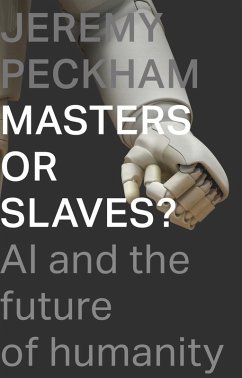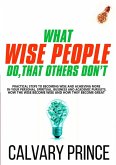'Written by an expert, it is historically situated, technologically informed, well-modulated in tone, coherent in argument, theological in orientation, and judicious in illustrations. More than a book of conclusions, its design and structure model the best in the art of robust critique while offering possible ways to consider the appropriate deployment of Artificial Intelligence.' - Bruce A. Little, Professor Emeritus of Philosophy, Southeastern Baptist Theological Seminary, USA.
Artificial Intelligence (AI) pervades much of our lives. We use facial recognition to open our phones, and the state uses it to track us - so what's the problem? Decisions are made using machine learning on our private and personal data, from shopping habits to medical history -have we lost control? We order our digital world in conversation with chatbots - how convenient, but is it changing our relationships with people? The prospect of a self-driving vehicle lies just around the corner - should we care that it might run over a child to save the passenger's life?
Jeremy Peckham shows us how we have become seduced by progress, embracing AI applications for their convenience, yet unwittingly diminishing our ability to be God's image-bearers and losing moral responsibility. Rooted in the biblical truth that humanity is created in God's image, Masters or Slaves? explores six ways in which AI has an impact today. We are challenged where, and how, to set boundaries, both privately and as a society, in order not to fall into addiction, slavery and idolatry.
Artificial Intelligence (AI) pervades much of our lives. We use facial recognition to open our phones, and the state uses it to track us - so what's the problem? Decisions are made using machine learning on our private and personal data, from shopping habits to medical history -have we lost control? We order our digital world in conversation with chatbots - how convenient, but is it changing our relationships with people? The prospect of a self-driving vehicle lies just around the corner - should we care that it might run over a child to save the passenger's life?
Jeremy Peckham shows us how we have become seduced by progress, embracing AI applications for their convenience, yet unwittingly diminishing our ability to be God's image-bearers and losing moral responsibility. Rooted in the biblical truth that humanity is created in God's image, Masters or Slaves? explores six ways in which AI has an impact today. We are challenged where, and how, to set boundaries, both privately and as a society, in order not to fall into addiction, slavery and idolatry.
Dieser Download kann aus rechtlichen Gründen nur mit Rechnungsadresse in A, D ausgeliefert werden.









